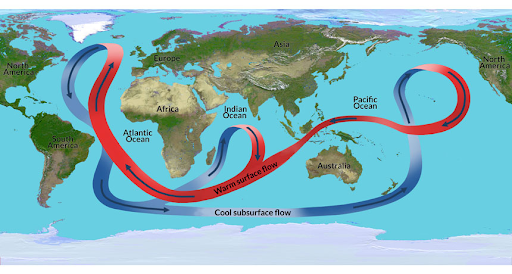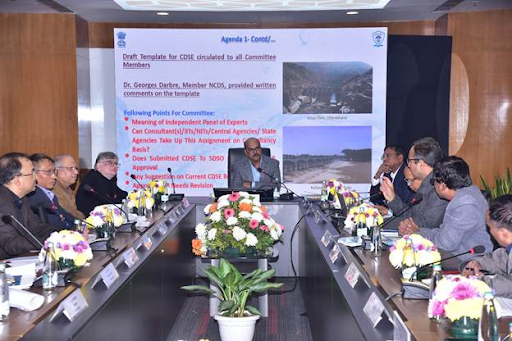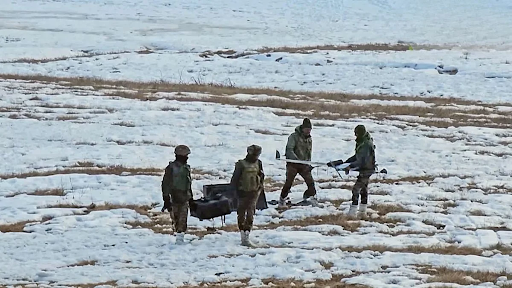



The Atlantic Ocean Circulation (AMOC) is part of the ThermoHaline Circulation (THC), which moves heat and nutrients around the world's ocean basins.

Copyright infringement not intended
Source: Science News Explorer
According to a study from Utrecht University in the Netherlands, global warming may not be enough to make up for the cooling that would happen if the AMOC broke down.
It is one of the most powerful and complicated systems that controls the weather on Earth. People often compare it to a huge belt that moves warm surface water from the tropics to the north and cold, dense water from the south. It keeps the Atlantic basin's temperatures stable and is very important for sea level patterns, marine ecosystems, and the stability of the world's climate.
|
Aspect |
Details |
|
Current Trend |
AMOC has weakened significantly since the mid-20th century. |
|
Projected Decline |
Expected to slow by 18–43% by 2100. |
|
Primary Cause |
Climate change, especially freshwater influx from Greenland ice melt, affecting ocean salinity and density gradients. |
|
Tipping Point Risk |
AMOC may be nearing a tipping point, beyond which a collapse could result in abrupt and irreversible climate changes. |
|
Tipping Point Mechanisms |
1. Salt transport feedback (disruption in saline water circulation) 2. Deep ocean convection changes (affects vertical water movement) |
Source: DowntoEarth
|
Praction Question: Q. With reference to the Atlantic Meridional Overturning Circulation (AMOC), consider the following statements: AMOC plays a major role in regulating the global climate by transporting warm water from the tropics to the North Atlantic. Melting of the Greenland ice sheet contributes to the weakening of AMOC. A complete collapse of AMOC would have no significant impact on the Indian monsoon system. Which of the statements given above is/are correct? A) 1 and 2 only B) 2 and 3 only C) 1 and 3 only D) 1, 2 and 3 Answer: A) 1 and 2 only Explanation: Statement 1: Correct – AMOC is responsible for transporting heat from the tropics to the North Atlantic, influencing weather and climate patterns globally. Statement 2: Correct – Freshwater from the melting Greenland ice sheet reduces salinity and density, which weakens the AMOC. Statement 3: Incorrect – A collapse of AMOC would significantly impact the Indian monsoon, likely weakening it due to disrupted global heat distribution. |





© 2026 iasgyan. All right reserved